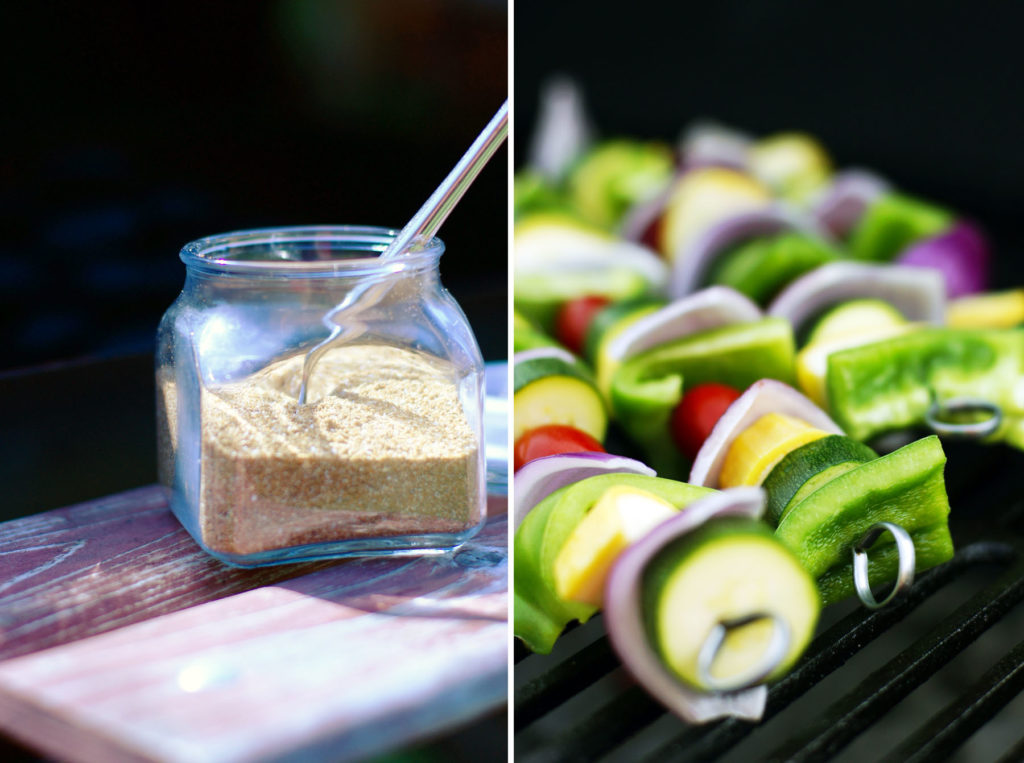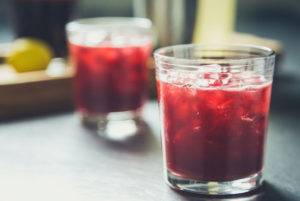Last year when I wrote the post on Grilling Basics I got asked when I would do a post on spice rubs. I have finally decided to present you with some ideas but thought I would give you the option to try a rub, brine, or marinade. All are good in their own way and for different reasons. Experiment at will, but be sure to write down what you do so you can duplicate your efforts if you love it.
With practice, you are sure to find combinations you love. But remember, as, with so many things, less is often more.
savour… grilled to perfection
RUBS
Rubs are a combination of herbs and spices that together make a wonderful flavor. They are used to rub on the food before grilling, sautéing or broiling.
A general-purpose rub might be salt, freshly ground black pepper, onion powder, and dried garlic. This combination works wonderfully ground up and rubbed into a steak before grilling. If you wish to take it a further you are limited only by your imagination. Add things like brown sugar, rosemary, cayenne, or dried jalapeño powder.
Some things to consider:
- For dry rubs, I recommend grinding with a mortar and pestle or in a spice grinder.
- If you would like a paste, grind in some fresh ginger or garlic.
- Rub the ingredients evenly over the meat and with enough force to get it to adhere.
- Your dry rub should last for weeks if kept in an airtight container, but do not keep any that has come in contact with raw meat.
- For best results, rub meat several hours in advance to get the flavors more than surface deep.
Lola’s Sweet and Spicy Rub

- 4 tablespoons dark brown sugar
- 2 tablespoons paprika
- 1 tablespoon dry mustard
- 1 tablespoon cumin
- 1 tablespoon ground coriander
- 1 tablespoon onion powder
- 1 tablespoon coarse salt
- 1 teaspoon garlic powder
- 1 teaspoon fresh ground black pepper
- 1 teaspoon cayenne powder
Brining
Brining is essentially soaking meat in a solution of water and salt. The solution helps the meat retain moisture and seasons it.
For the most basic brine, start with 1 cup of salt for each gallon of water. Keep in mind that you will need enough solution to cover your meat (or whole bird) in a container. From there you can add a variety of other seasonings. Try things like peppercorns, apple juice, thyme, or brown sugar. You might even try some of the same ingredients that will appear in the finished dish such as onion, celery, or garlic.
Some things to consider:
- You will usually need to brine for at least 12 hours and up to 24 hours. Smaller pieces of meat will take less time.
- The longer you brine, the saltier the meat.
- You will need a container (use plastic or glass) that is big enough to hold your meat or bird covered in water, but small enough to fit in the refrigerator.
- Always keep the brining meat in the refrigerator.
- No need to brine self-basting poultry. It has already been treated with salt.
- Brining is best for pork and poultry.
- Do not save brine. It cannot be used for anything else or reused.
Marinades
Marinades are seasoned liquids meant to treat food. Since they almost always include an acid like wine, vinegar, or citrus juice they do a great job of tenderizing and flavoring. With one of these bases, add other flavors to enhance the marinade.
For a basic wine, marinade combine 2 cups of dry red wine with a small onion, garlic clove, a few sprigs of parsley and thyme, and some salt to taste. Simmer for a couple of minutes and cool before using.
Some things to consider:
- Marinades can be cooked or uncooked. Just be sure to cool your marinade before adding it to food.
- Figure ½ cup marinade for each pound of food.
- If you have excess marinade that did not come in contact with raw meat, save it for a sauce to finish your dish. Be sure to bring it to a boil first to kill any bacteria.
- Most foods will not need to be marinated for more than a few hours (some less).
- If you need to brown your meat, be sure to wipe off any excess marinade before putting it in the pan.
Have you got a favorite rub, brine or marinade? Share it with the other Nesters here. Happy grilling!








